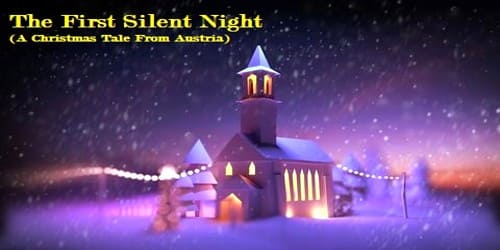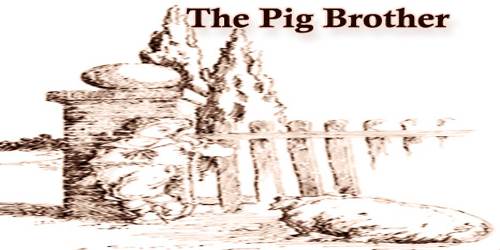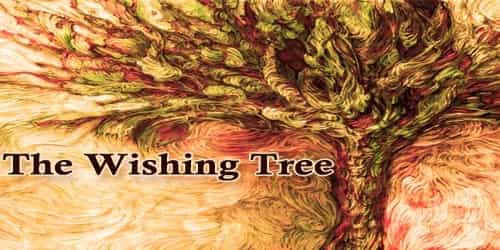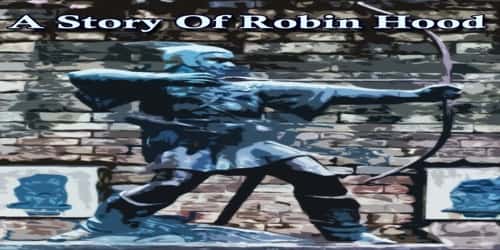The First Silent Night (A Christmas Tale From Austria)
Not too many years ago, in the village of Oberndorf in Austria, Father Josef Mohr entered his church one day at dawn. The church was quiet, dark and cool, and Father Mohr bowed his head in prayer. He could smell the scent of pine from the woods beyond the church, and he could feel the crisp wintry air that slipped through the cracks in the walls. “So peaceful,” he sighed, for he loved this season. He would begin to prepare that morning for the Christmas Mass, which he would say in just one week.
A family of mice who lived in the vestry began to quake with fear, for they knew that Father Mohr’s joy would soon fade. Father Mouse bowed his head and clasped his paws in prayer. “We must pray for a solution,” he said, and Mother Mouse placed her paw upon her son Herbert’s shoulder. She was a warm and generous mother, and she hoped to comfort her son who trembled uncontrollably. “Father,” Herbert whispered, “I’m so terribly sorry …”
Father Mouse shook his head and muttered, “There’s nothing to be done,” he said. “You have ruined Christmas for everyone in Oberndorf.”
“But Father,” Herbert said, “I was hungry. Winter is so cold, and we’re such poor church mice, and there was nothing to eat …”
Mother Mouse shushed her son with a twitch of her whiskers. She too wished to find some way to solve their problem. Herbert had just told his parents his secret.
Cold and hungry, Herbert had been wandering through the church one afternoon when he came upon the grand organ. When he saw the leather bellows, his stomach rumbled. “Perhaps I’ll have a nibble of these bellows, just a little,” and he did, but they tasted so good, he kept nibbling and nibbling. Day after day, he scurried to the organ and took another taste of the bellows. “Just a little taste was what I wanted,” he told his parents. “Just a tiny taste, but I got carried away.”
His sister Margaret had had her share, too, but Herbert wouldn’t tell his parents that. Margaret trembled beside him, but Herbert was determined to shoulder all the blame. He did not want to ruin his sister’s Christmas, too.
The organ — Father Mohr’s organ, his pride, and joy — was ruined. Herbert knew when the priest touched his fingers to those keys, he would not hear a sound. The bellows were ruined.
The family huddled close and peered through their mouse hole into the chapel. There they saw Father Mohr, his head bowed, his hands clasped. The church mice held their breaths as Father Mohr finished his prayer, stood, and walked toward the organ.
Herbert trembled still more when he heard the howling wind outside. His stomach rumbled, his whiskers twitched, and he curled his tail up as tightly as he could, trying to make himself as small as possible.
Father Mohr touched his fingers to the keys, and Father Mouse groaned at the silence that filled the church.
“What’s this?” Father Mohr asked, placing another finger, and another, and another to the keys. Not a sound.
Before his mother could stop him, Herbert rushed from the safety of his hole and stood at Father Mohr’s feet. “It’s my fault!” he cried. “I ate the bellows. I was starving. We had nothing to eat. The bellows were delicious, but I’m so sorry, Father Mohr. I’ve ruined Christmas for everyone in Oberndorf.”
Father Mohr gently lay a finger on Herbert’s tiny head. “It’s all right, Herbert,” he whispered. “I forgive you. And you must not worry. I think I know just what to do.”
Herbert’s whole body shuddered with relief, but he did not sleep that night or the next or the next. He waited anxiously for Christmas Eve, wondering what Father Mohr planned to do. What would happen when the congregation waited to hear their beautiful organ playing Christmas hymns? Father Mohr was kind and forgiving, but the parishioners might not be so generous.
On Christmas Eve, Herbert nearly wept at the sight of all the churchgoers dressed in their finery, and at the creche and the wreaths, and the angels hovering above, who seemed to Herbert to be waiting to hear the organ.
Just before the service was to begin, Father Mohr bent down and leaned into the little mouse hole. “Herbert,” he called.
“Yes, Father?” Herbert asked, peering out from his hole.
“Here is a little supper for you. And listen closely tonight. I wrote a poem for Christmas, and the schoolmaster, Franz Gruber, has set my poem to music. Tonight you shall hear us play and sing. I will always think of you, Herbert when we play ‘Silent Night, Holy Night.'”
And that night, Father Mohr, and Franz Gruber with his guitar stood in front of the altar. When the time came to sing, they sang the most beautiful duet the churchgoers had ever heard.
“Silent night,
“Holy night,
“All is calm,
“All is bright …”
The parishioners were amazed by the beauty of this song. Mother and Father Mouse embraced, and Herbert sat up on his back legs and sang along, though only Mother and Father and his sister Margaret could hear his tiny voice over the those in the congregation who joined in the song.
That was in 1818, but the simple and elegant hymn, and the story of its creation, traveled fast, and before long people all over the world were singing the song that Herbert Mouse came to love more than any other, the song he considered his song. And it was, after all, one of the loveliest Christmases anyone in Oberndorf had ever known.
















